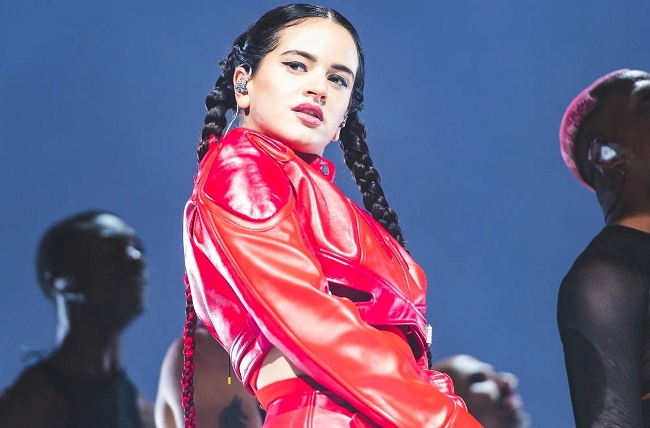A new album from Rosalía, the Spanish flamenco prodigy and multi-genre pop creator, has just been published. For the first time since the breakthrough she had in 2018 with “El Mal Querer,” she has released a full-length album since that time.
Whi is Rosalía
Rosalía has since collaborated with a wide range of artists, including Travis Scott, Ozuna, Billie Eilish, and J Balvin, all of whom speak Spanish.

For some, her success has demonstrated how much leeway white performers have when it comes to embracing non-white styles and sounds. Rosala is now known as one of pop’s most sonically daring and inventive vocalists.
Rosala’s unusual pop popularity, her avant-garde approach to style blending, and the cultural politics of claiming multiple traditions are all discussed on this week’s Popcast.
Rosalía, as a Multi-Award Winning International Star, is Already Immensely Popular.
Her 2018 album “El Mal Querer,” which translates to “The Bad Loving,” fused rap and techno loops with traditional flamenco hand clapping. As a result, she was recognised as the year’s best artist by MTV and won the Grammy for best Latin rock, urban, or alternative album.
You could say that I’m a true Catalan. Her statement was met with roaring ovation from the audience: “I’m very glad to be here, representing where I came from and representing my culture.”
It’s ironic that she got the prize for best Latina artist given that she is not even Latina. Yet she has made records with Latin rhythms and collaborated with Latino reggaeton giants like Bad Bunny and J. Balvin.
Sant Esteve de Sesrovires is a small town not far from Barcelona, and it’s safe to say that everyone there loves Rosala.
Mireia Ventura, proprietor of a bar in the town plaza, exclaimed, “I’m really proud of her.” I’ve known her since she was a young child. My son went to school with her, she said. She was such a sweet and thoughtful young lady.
Teenage Venezuelan bartender Meyer Castro has been living in Spain for two years. He is from the United States.
“I couldn’t believe it when they told me Rosala was from here,” he added. Simply put, I thought she was Latina. Maybe from Colombia.”
In one of her hit songs named “Con Altura” or “With Altitude,” Rosalía sings along to a reggaeton beat – about as Latino as you can get.
“I’ve been studying flamenco and I’ve noticed that it contains Colombiana style, Guajira style, and rumba style,” she explained. The link to Latin America is clear. And when I went to Panama, or when I went to Mexico, I felt like I was at home. So, yeah, I feel Latina.”
Though some Latinos disagree. There’s an old adage that says origins matter more than emotions.
Rosalá is aware of the difference. She is aware that the region of Spain where flamenco originated lies to the west.
But generally speaking, the singer is excused. A Bolivian computer programmer called Fernando Orellano, another foreigner living in her area, shrugged it off.
Conclusion
He concluded that “there must be something Latina about her.” Maybe it’s just because she’s Spanish, with all the ties between Spain and Latin America.
Cultural, linguistic, and historical ties all have a role. And they’ve joined forces this summer on an upcoming dance single that’s already a smash.












